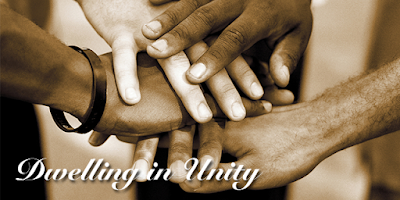“Behold, how good and pleasant it is when brothers and
sisters dwell in unity. It is like the precious oil on the head, running down
on the beard, on the beard of Aaron, running down on the collar of his
robes! It is like the dew of Hermon,
which falls on the mountains of Zion!
For there the Lord has commanded the blessing: life forevermore.” Psalm 133
I have always found this tiny psalm to be curious. The image of sacred oil poured on God’s
priest in such volume that is runs down his beard and onto the collar of his
holy vestments does not exactly sync with my idea of unity. Get the Kleenexes! Dew
on Mt. Hermon also is a puzzling analogy, this gentle water that covers an
entire mountain! What they both have in
common is a sense of pervasiveness. The
oil and the dew are in abundance and they both are symbols of the Spirit which
hovers consistently over the face of the earth and among all people.
Unity is like that. When people are living in harmony with
one another it covers everything that has been divisive, it gets into the
crevices of partisan debate and intellectual and ecclesiastical pride. The
result of unity is abundance and provision for all. Psalm 133 says it is a blessing and it leads
ultimately to everlasting life.












